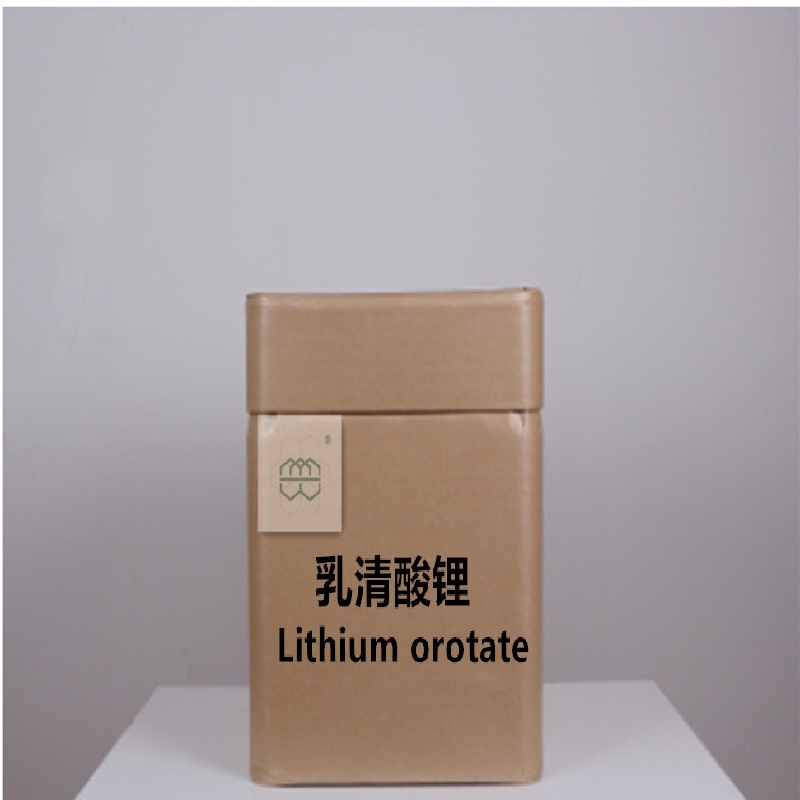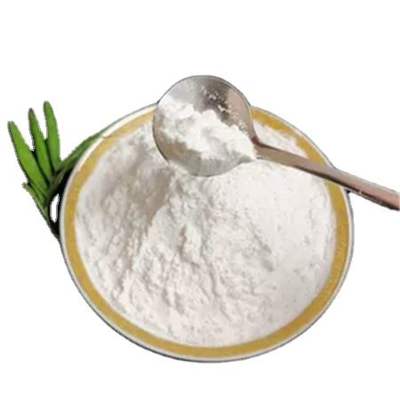-
Categories
-
Pharmaceutical Intermediates
-
Active Pharmaceutical Ingredients
-
Food Additives
- Industrial Coatings
- Agrochemicals
- Dyes and Pigments
- Surfactant
- Flavors and Fragrances
- Chemical Reagents
- Catalyst and Auxiliary
- Natural Products
- Inorganic Chemistry
-
Organic Chemistry
-
Biochemical Engineering
- Analytical Chemistry
-
Cosmetic Ingredient
- Water Treatment Chemical
-
Pharmaceutical Intermediates
Promotion
ECHEMI Mall
Wholesale
Weekly Price
Exhibition
News
-
Trade Service
The COVID-19 pandemic has posed many challenges to global food security over the past two years, and the current situation in Russia and Ukraine has added another serious challenge
.
Russia and Ukraine play an important role in global food
production and supply .
Russia is the world's largest wheat exporter , while Ukraine is fifth
.
The two countries together account for 19% of global barley supply, 14% of wheat supply and 4% of maize supply, and account for more than a third of global grain exports
.
The two countries are also major suppliers of rapeseed, accounting for 52% of the world sunflower oil export market
.
In the same highly concentrated global fertilizer supply landscape, Russia is the main producer
.
.
Russia and Ukraine play an important role in global food
production and supply .
Russia is the world's largest wheat exporter , while Ukraine is fifth
.
The two countries together account for 19% of global barley supply, 14% of wheat supply and 4% of maize supply, and account for more than a third of global grain exports
.
The two countries are also major suppliers of rapeseed, accounting for 52% of the world sunflower oil export market
.
In the same highly concentrated global fertilizer supply landscape, Russia is the main producer
.
Disruptions to Ukrainian and Russian grain and oilseed production supply chains and logistics, as well as restrictions on Russian exports, will have a major impact on food security
.
About 50 countries currently rely on imports from Russia and Ukraine to secure 30 percent or more of their wheat supplies, most of which are least developed or low-income food-deficit countries in North Africa, Asia and the Near East
.
For these countries, the food security situation is particularly dire
.
Many European and Central Asian countries receive more than 50% of their fertilizer supply from Russia, and supply shortages could extend into next year
.
.
About 50 countries currently rely on imports from Russia and Ukraine to secure 30 percent or more of their wheat supplies, most of which are least developed or low-income food-deficit countries in North Africa, Asia and the Near East
.
For these countries, the food security situation is particularly dire
.
Many European and Central Asian countries receive more than 50% of their fertilizer supply from Russia, and supply shortages could extend into next year
.
Grain prices, which had been climbing since the second half of 2020, reached an all-time high in February 2022 due to high demand, high agricultural and transportation costs, and disruptions to port operations
.
Take wheat and barley, whose global prices have risen by 31% during 2021
.
Canola and sunflower oil prices rose more than 60%
.
High demand and volatile natural gas prices have also pushed up fertilizer costs
.
For example, the price of urea, an important nitrogen fertilizer, has more than tripled in the past 12 months
.
.
Take wheat and barley, whose global prices have risen by 31% during 2021
.
Canola and sunflower oil prices rose more than 60%
.
High demand and volatile natural gas prices have also pushed up fertilizer costs
.
For example, the price of urea, an important nitrogen fertilizer, has more than tripled in the past 12 months
.
The extent and duration of the current conflict remains uncertain
.
Given that agricultural activities in these two major commodity exporters may be disrupted, global food insecurity could be significantly exacerbated by the already high and volatile international prices of food and agricultural inputs
.
The conflict could also limit agricultural production and purchasing power in Ukraine, leading to increased local food insecurity
.
.
Given that agricultural activities in these two major commodity exporters may be disrupted, global food insecurity could be significantly exacerbated by the already high and volatile international prices of food and agricultural inputs
.
The conflict could also limit agricultural production and purchasing power in Ukraine, leading to increased local food insecurity
.
Identify core risk factors
The grain harvest season will begin in June, but it is uncertain whether Ukrainian farmers will be able to harvest the crops and ship them to the market
.
Large numbers of people have been displaced, and the number of agricultural laborers has been greatly reduced
.
At the same time, it will be difficult to enter the farmland to work, and livestock and poultry breeding and fruit and vegetable production will also be restricted
.
.
Large numbers of people have been displaced, and the number of agricultural laborers has been greatly reduced
.
At the same time, it will be difficult to enter the farmland to work, and livestock and poultry breeding and fruit and vegetable production will also be restricted
.
Ukraine's Black Sea ports have been closed
.
Even if the inland transport infrastructure is intact, a non-functioning rail system will hinder the movement of food by rail
.
Ships can still pass through the Turkish Strait, an important trade point through which large quantities of wheat and corn are transported
.
Rising insurance premiums in the Black Sea region will push up already high shipping costs, further impacting the cost of food imports
.
In addition, it is unclear whether storage and processing facilities will remain intact and staffed
.
.
Even if the inland transport infrastructure is intact, a non-functioning rail system will hinder the movement of food by rail
.
Ships can still pass through the Turkish Strait, an important trade point through which large quantities of wheat and corn are transported
.
Rising insurance premiums in the Black Sea region will push up already high shipping costs, further impacting the cost of food imports
.
In addition, it is unclear whether storage and processing facilities will remain intact and staffed
.
Russia's Black Sea ports remain open for now and are not expected to have a major impact on agricultural production in the short term
.
However, the financial sanctions against Russia have already caused a significant devaluation of the currency, and if the sanctions persist, productivity and growth will be undermined, ultimately raising the cost of agricultural production even further
.
.
However, the financial sanctions against Russia have already caused a significant devaluation of the currency, and if the sanctions persist, productivity and growth will be undermined, ultimately raising the cost of agricultural production even further
.
Russia is a major player in the global energy market, accounting for 18% of global coal exports, 11% of oil exports, and 10% of natural gas exports
.
In addition to consuming fuel, natural gas, electricity and other energy sources, agriculture also requires fertilizers, pesticides and lubricants
.
The production of feed ingredients and feed products also consumes energy
.
The current conflict has caused energy prices to soar, negatively affecting the agricultural sector
.
.
In addition to consuming fuel, natural gas, electricity and other energy sources, agriculture also requires fertilizers, pesticides and lubricants
.
The production of feed ingredients and feed products also consumes energy
.
The current conflict has caused energy prices to soar, negatively affecting the agricultural sector
.
More than 35% of the world's population depends on wheat, and the current conflict could lead to a sharp drop in wheat exports from Russia and Ukraine
.
It is unclear whether other exporting countries will be able to fill the gap
.
Wheat stock levels in Canada are already low, and exports could be limited as the U.
S.
, Argentine and other governments are expected to struggle to secure domestic supplies of wheat
.
.
It is unclear whether other exporting countries will be able to fill the gap
.
Wheat stock levels in Canada are already low, and exports could be limited as the U.
S.
, Argentine and other governments are expected to struggle to secure domestic supplies of wheat
.
Countries reliant on wheat imports are likely to increase import levels, further adding to global supply pressures
.
Egypt, Turkey, Bangladesh and Iran are among the world's largest importers of wheat, with more than 60% of their purchases coming from Russia and Ukraine, all of which have yet to be finalized
.
Lebanon, Tunisia, Yemen, Libya and Pakistan also rely heavily on Russia and Ukraine for wheat supplies
.
Global corn trade is likely to contract due to expectations that other exporters will not be able to make up for Ukraine's lost exports and high prices
.
.
Egypt, Turkey, Bangladesh and Iran are among the world's largest importers of wheat, with more than 60% of their purchases coming from Russia and Ukraine, all of which have yet to be finalized
.
Lebanon, Tunisia, Yemen, Libya and Pakistan also rely heavily on Russia and Ukraine for wheat supplies
.
Global corn trade is likely to contract due to expectations that other exporters will not be able to make up for Ukraine's lost exports and high prices
.
Export prospects for sunflower oil and other vegetable oils also remain unclear
.
Major sunflower oil importers such as India, the European Union, China, Iran and Turkey will have to find other sources of supply or switch to other types of vegetable oils, which could have spillover effects on products such as palm, soybean and canola
.
.
Major sunflower oil importers such as India, the European Union, China, Iran and Turkey will have to find other sources of supply or switch to other types of vegetable oils, which could have spillover effects on products such as palm, soybean and canola
.
policy suggestion
1.
Keep global food and fertilizer trade open
.
Every effort should be made to protect production and sales activities to meet domestic and global demand
.
Supply chains should keep functioning, which means protecting crops, livestock, food processing infrastructure and all logistics systems
.
Keep global food and fertilizer trade open
.
Every effort should be made to protect production and sales activities to meet domestic and global demand
.
Supply chains should keep functioning, which means protecting crops, livestock, food processing infrastructure and all logistics systems
.
2.
Find new and more diverse sources of food supply
.
Countries that depend on Russian and Ukrainian food imports should explore alternative sources of supply to withstand shocks
.
These countries should also use existing food reserves while diversifying domestic production to ensure that their citizens have access to healthy diets
.
Find new and more diverse sources of food supply
.
Countries that depend on Russian and Ukrainian food imports should explore alternative sources of supply to withstand shocks
.
These countries should also use existing food reserves while diversifying domestic production to ensure that their citizens have access to healthy diets
.
3.
Support vulnerable groups, including internally displaced populations
.
Governments must expand social safety nets to protect vulnerable groups
.
In Ukraine, international organizations must step in to help people in need
.
Globally, more people will be driven into poverty and hunger by conflict, and we must provide them with timely and targeted social protection programmes
.
Support vulnerable groups, including internally displaced populations
.
Governments must expand social safety nets to protect vulnerable groups
.
In Ukraine, international organizations must step in to help people in need
.
Globally, more people will be driven into poverty and hunger by conflict, and we must provide them with timely and targeted social protection programmes
.
4.
Avoid hasty policy responses
.
Before enacting any measures to secure food supplies, governments must consider their potential impact on international markets
.
Lowering import tariffs or imposing export restrictions may help alleviate food security challenges in individual countries in the short term, but would push up prices in global markets
.
Avoid hasty policy responses
.
Before enacting any measures to secure food supplies, governments must consider their potential impact on international markets
.
Lowering import tariffs or imposing export restrictions may help alleviate food security challenges in individual countries in the short term, but would push up prices in global markets
.
5.
Strengthen market transparency and dialogue
.
Greater transparency and information on global market conditions can help governments and investors make informed decisions when agricultural markets are volatile
.
Initiatives such as the G20 Agricultural Market Information System (AMIS) enhance this transparency by providing objective and timely market assessments
.
Strengthen market transparency and dialogue
.
Greater transparency and information on global market conditions can help governments and investors make informed decisions when agricultural markets are volatile
.
Initiatives such as the G20 Agricultural Market Information System (AMIS) enhance this transparency by providing objective and timely market assessments
.







